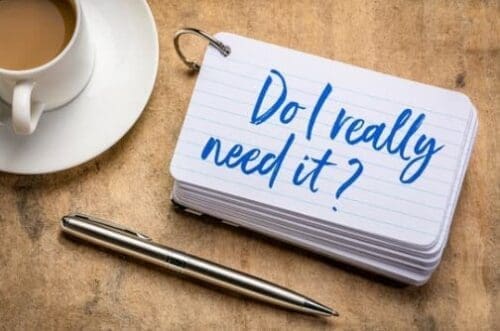 As an estate planning Firm, one of the most common questions we hear is:
As an estate planning Firm, one of the most common questions we hear is:
“Do I really need a will?”
It’s a fair question—and the answer isn’t one-size-fits-all. But in most cases, the answer is yes. A will isn’t just for the wealthy or the elderly. It’s a basic but powerful legal tool that almost every adult can benefit from.
What a Will Actually Does
A last will and testament is a legal document that lets you:
- Decide who gets your property and assets after you die
- Name a guardian for your minor children
- Appoint someone (an executor) to carry out your wishes
- Express any specific instructions, such as leaving gifts to charity or passing down family heirlooms
If you don’t have a will, the state steps in and makes those decisions for you—often in ways that don’t reflect your preferences.
Related Post: Why You NEED an Estate Plan In Your 20s and 30s
What a Will DOES NOT DO
A last will and testament does not:
- Allow you to avoid probate
- Determine the distribution of an asset that has a designated beneficiary or a joint owner
In addition to executing a Will, it is also VERY important to understand which of your assets will pass through that Will. Although most people think the Will is the most important piece of estate planning, it does not have the power to determine how all of your assets will pass.
If you signed a document with your financial advisor or insurance agent to name a beneficiary on your brokerage accounts or life insurance, then that document, which is a contract that you signed with the financial company, takes precedence over your Will. The person or people who you named a beneficiaries will get those assets.
If you purchased a home with another person “in survivorship” or you added another person to your bank account, you now own those assets jointly with that other person. If you die before that person, that person gets the assets, no matter what your Will says.
Why Most Adults Should Have a Will
Here are some common scenarios where a will is not just helpful, but essential:
-
You Own Property or Have Financial Accounts
Even if you don’t consider yourself wealthy, you likely have assets—like a car, a home, a savings account, or personal possessions. A will ensures these go to the people you choose, not just your closest legal relatives.
-
You Have Children
If you have minor children, your will is the only place to legally name a guardian. Without it, the court will appoint someone based on state law—possibly not the person you would have chosen.
-
You’re Married (or Not Married)
Marriage doesn’t automatically mean your spouse gets everything. In some states, assets can be split between your spouse and children, or even go to your parents or siblings. If you’re in a long-term relationship but not legally married, your partner may receive nothing without a will.
-
You Want to Minimize Conflict
When there’s no clear plan, families can disagree over who gets what. A well-written will reduces confusion, delays, and disputes.
-
You Support a Cause or Have Specific Wishes
Want to leave money to a charity? Gift your classic car to a friend? A will gives you the ability to be intentional with your legacy.
Related Post: What is the Difference Between a Will and Estate Planning?
When You Might Not Need a Will (Yet)
There are a few limited situations where a will may not be urgent:
- You have very few assets, and no specific preferences about who receives them.
- All of your assets have named beneficiaries (like life insurance or retirement accounts), or are jointly owned and pass directly to another person.
- You’re young, single, and debt-free—but even then, having a basic will can still simplify things for your loved ones.
That said, life changes quickly. Marriage, kids, property, or a sudden inheritance can change your estate planning needs overnight. It’s smart to plan ahead.
What Happens If You Die Without a Will?
If you die without a will, it’s called dying intestate. Your state’s laws will determine how your assets are divided—and it may not align with what you want. For example:
- A spouse might have to share your estate with your children or parents.
- A court chooses a guardian for your kids.
- Friends, stepchildren, or unmarried partners may receive nothing at all.
Even more importantly, your loved ones will have to sort it all out during an already difficult time. A will makes things easier.
The Bottom Line
A will can make a big difference. It puts you in control of what happens after you’re gone and helps your family avoid confusion, delay, and unnecessary stress.
Whether your situation is simple or complex, I always encourage clients to think of a will as a gift to the people they care about most. It doesn’t have to be expensive or complicated—just thoughtful and clear.
If you’re ready to get started, talk to an estate planning attorney (yes, even for a “basic” will). We’ll help you ask the right questions, avoid common mistakes, and make sure your wishes are legally protected.
Still unsure? Feel free to reach out to schedule a consultation. It’s never too early to plan—only too late.
Disclaimer: The information provided in this article does not, and is not intended to, constitute legal advice and is for general informational purposes only.
Let Us Know How We Can Help!
Please fill in your contact information and a brief message about what you need help with. A consultation will need to be scheduled in order to provide legal guidance.
Marketing & Technology Director at RWC, LLC, Attorneys & Counselors at Law
Ukraine born and Israel / Miami, FL raised. University of Miami graduate in the Marketing field.
Mom to a girl, a boy, and a Siberian Husky.







